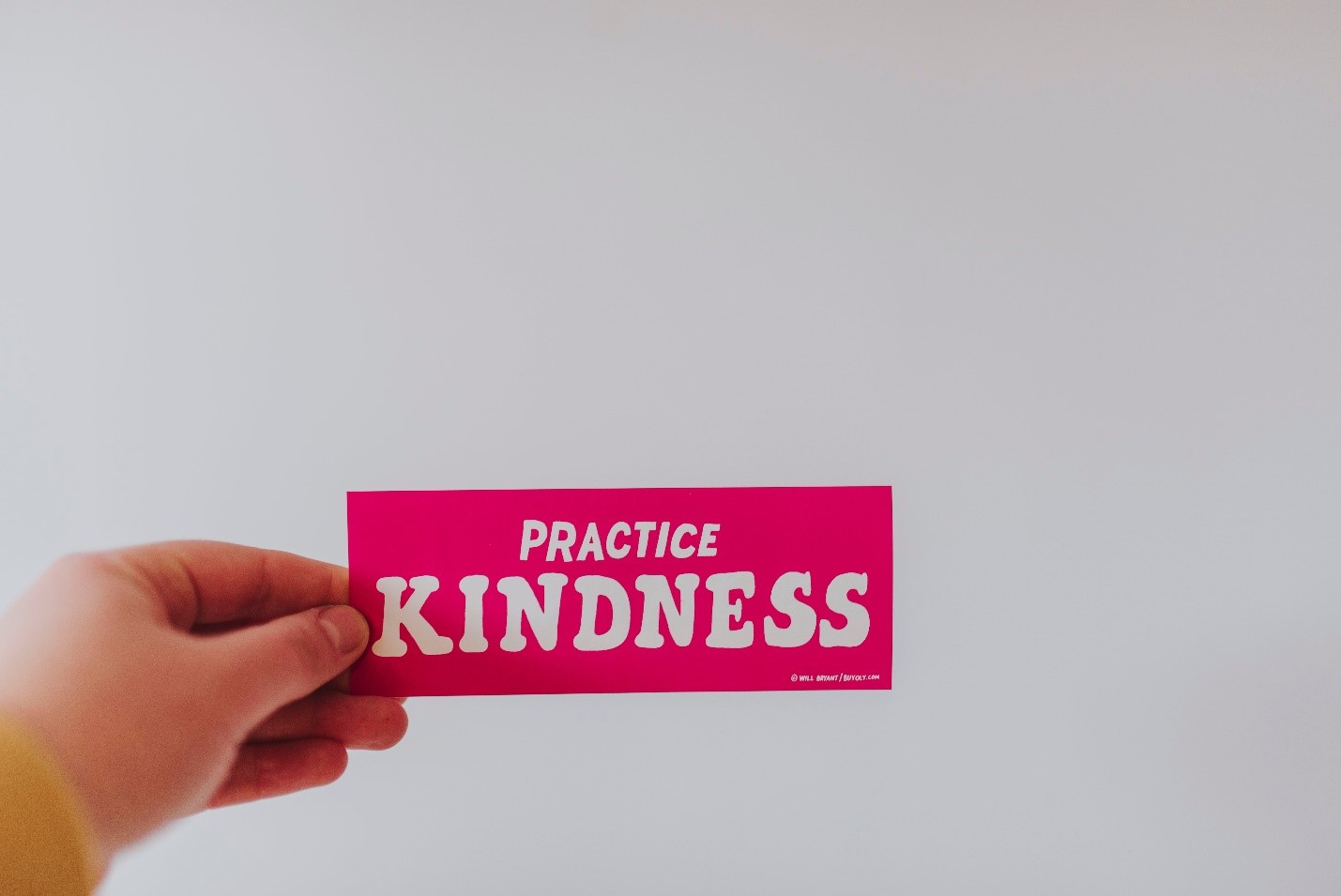Self-compassion
“…Self-compassion entails three core components. First, it requires self-kindness, that we be gentle and understanding with ourselves rather than harshly critical and judgmental. Second, it requires recognition of our common humanity, feeling connected with others in the experience of life rather than feeling isolated and alienated by our suffering. Third, it requires mindfulness- that we hold our experience in balanced awareness, rather than ignoring our pain or exaggerating it. ” - Kristin Neff, PhD1
It is the time of the year when students receive their examination results, and many get very discouraged and self-critical when they perceive their results as being not up to expectations. Often, students cannot help but compare their performance to their cohort mates and feel disappointed in themselves. Unfortunately, not everyone can end up being in the above average range, or excelling, and there will always be someone else who does better and is more successful. Some students can be very harsh towards themselves, and begin to put themselves down. They may think that they are worthless and not good enough, amongst other very negative thoughts and self-judgments, which affects their self-esteem. They may start to doubt themselves, feeling hopeless and helpless to do anything, triggering a downward spiral. How then can we help our teens to cope with this insecurity?
- Recognise our common humanity
We have to try and get our teen to care for themselves as they would treat their best friend – sadly, many people are incredibly mean to themselves but would never treat others, not even strangers, in the same punitive way. Some questions you can pose to your teen would be “What would you say to or do for your best friend who was in this same situation?” and “Are you not also deserving of kindness and compassion as other people?”, “Is there anyone who is so perfect and doesn’t make any mistakes at all?” Something else they can also be asked to reflect on would be whether or not such self-criticism is actually helpful to them or did it simply make things much worse? Usually, students who beat themselves up find themselves unmotivated to do anything different or to try and improve since they feel so badly about themselves. Something your teen can do is to start by noticing how they react to disappointments and difficulties – what kinds of things they do and say to themselves, taking especially note of negative thoughts and actions, and to be aware of how this makes them feel inside. What happens after they are harsh and punishing towards themselves? Does it lead to discouragement and despair or motivation? Are they able to show some compassion and kindness to themselves because all human beings have a right to compassion by virtue of being born a human?
-
Practice acceptance of ourselves
Every person has something about themselves that they are unhappy about, something they feel insecure about and wish they could change. This is a very common human and real emotion to feel inadequate and imperfect, and is an unavoidable part of life. So much of who we are is also beyond our control and ability to change (our genes, the family, society and country we are born into etc.) All people are born with strengths as well as weaknesses. How clearly and accurately does your teen see herself or himself? Try asking your teen to make a list of their 5 strengths (culturally valued traits that they feel they are above average in), and 5 traits they are average or neutral in, and 5 traits they are below average in. This is best done as a family exercise, and parents can role model this for their teen, and share openly and honestly with each other. Upon completing the full range of traits, help them to see that being human means we are wonderfully complex and encompass a mixture of highs and lows and averages, and it is OK. We will be better at somethings than others, and worse off at some other things. Is it possible for your teen to accept the reality of themselves, for who they truly are?

Photo by Sandrachile . on Unsplash
3. Treat ourselves with kindness
When we criticize and attack ourselves, it is perceived as a threat by the brain and triggers a fight-or-flight response to protect ourselves. There is a surge in adrenaline and cortisol and other stress hormones to signal to the body to ready itself to deal with a physical enemy or run away and avoid the situation. One thing we can do to counteract this is to soothe ourselves, and this taps into our caregiving system instead. For example, when a mother bonds with her baby, or parents interact with their young children, or someone gives or receives a gentle touch – all of these social situations result in the release of oxytocin, which is the hormone for love and relationships. Increased levels of oxytocin in our bodies also increases the feelings of trust, safety, and people report feeling warmth and compassion towards themselves. So one thing we can encourage our teenagers to do is to e give themselves a hug when they are feeling down or stressed out. Our body responds to the physical gesture of a tender touch just as baby would feel being held in his mother’s arms, and triggers a rush of oxytocin to calm us down. If they feel embarrassed to do this, it also works if they imagine themselves hugging themselves. As parents, you can also give your teens a hug, or put your arm over their shoulder, or a pat on their back, ruffle their hair - if they are still willing to accept such gestures from you. Do ask for permission first and it would probably work better if you are in a private setting (not in front of their friends!).
We hope that these parenting tips are helpful for you. If you require further support or would like to talk to one of us, please feel free to contact any of the counselors at RGC via email: [email protected].
Warmest regards,
The RGC team

The RGC Team from L-R: Mei Hui, Kah Hwee, Alexis, Paul, Zull, Jeffrey
References:
1 Neff, K. (2011). Self Compassion: stop beating yourself up and leave insecurity behind. Hodder & Stoughton Ltd: London, UK.